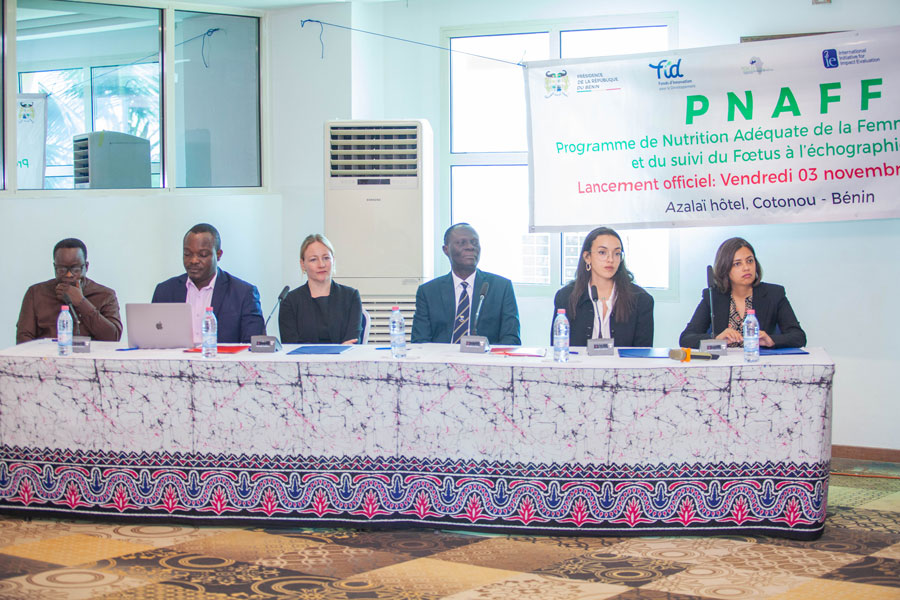3ie, in partnership with the Government of Benin, is launching an impact evaluation of a groundbreaking initiative: a practical, scalable nutrition program to improve maternal and infant health outcomes. The new “Program for Adequate Nutrition in Pregnant Women and Fetal Ultrasound Monitoring” (Le Programme de Nutrition Adéquate de la Femme enceinte et du suivi échographique Fœtal (PNAFF)) will provide regular health and nutrition monitoring of pregnant women, drastically expand antenatal and perinatal monitoring, and aim to improve attendance and service delivery. Our impact evaluation will measure the degree to which the program achieves its goals.
Given the life-altering effects of maternal nutrition for both a mom and her baby, this simple intervention has the potential to achieve drastic change. Our evaluation will focus on measuring effects such as access to preventative care during pregnancy, maternal anemia, intrauterine growth restriction, and low birth weight. We will use a randomized design to determine the effects of receiving these additional monitoring services on health outcomes. Through qualitative work, we will attempt to understand women’s experiences, so that the program can be improved in the future. If we identify positive results, we expect and hope that longer term outcomes, such as improve health and human capital development, may also improve.
Maternal nutrition during pregnancy is vital to the immediate health of women, birth outcomes, and the long-term health of infants. Maternal supplementation reduces many of the risks associated with pregnancy. For example, calcium supplementation reduces maternal mortality and risks associated with pre-eclampsia. Maternal vitamin A supplementation reduces risk of maternal anemia, infection and night blindness. Specific micronutrients are known to play key roles in fetal development, with folic acid, iron, and vitamin B12 all having critical importance in the first and second trimesters. Early life exposures, particularly in the first trimester, can result in fetal programming which increases risk of non-communicable diseases, including cardiovascular disease and diabetes in adulthood. Intrauterine exposures can even affect workforce participation and mental health outcomes of people in their 50s.
In Benin, attendance at antenatal care visits is low and poor pregnancy outcomes are common, including maternal mortality and low birth weight. Women who attend antenatal visits generally receive iron-folic acid supplements, preventative malaria treatment, weight monitoring, and gynecological health exams. They also receive periodic tests for gestational diabetes. The additional monitoring services offered by this new initiative are expected to increase early detection of health risks and improve maternal diets, thereby improving outcomes for mothers and newborns.
This evaluation is a part of 3ie's West Africa Capacity-building and Impact Evaluation (WACIE) program, a regional initiative that supports and promotes the culture of evidence-informed decision-making among high-level policymakers across West Africa.






innovative and practical . Mothers in pregnancy are very concerned about the well - being of their babies an will certainly go an extra mile . Look forward to the findings from this impact evaluation